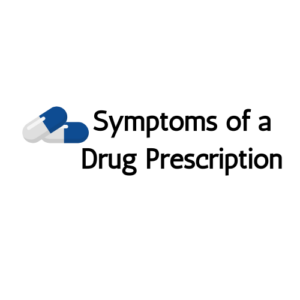Learn More ♥ Live Healthier

Increase Your Awareness with Basic Facts about Wellbutrin (Bupropion)
March 2023

*Picture displayed is a general pill and should not be used as a pill identifier.
The following highlights the facts. More information can be obtained through the sites listed below as well as many other informational sites regarding prescription drugs. Medication facts can change. Make sure you have all up-to-date information.
What You Need to Know
- Buproprion is an antidepressant medication that treats major depressive disorder (MDD), seasonal affective disorder (SAD) and is used to help people to quit smoking.
- Bupropion was originally developed in 1966 and patented in 1974 by Burroughs Wellcome.
- Buproprion was approved by the U.S. Food and Drug Administration (FDA) in 1985 and marketed as Wellbutrin.
- Wellbutrin is currently an antidepressant of the aminoketone class.
- Buproprion acts as a norepinephrine-dopamine reuptake inhibitor (NDRI).
What is Bupropion (Wellbutrin) used for?
Bupropion (Aplenzin, Wellbutrin, Wellbutrin SR, Wellbutrin XL)
- To treat Depression
Bupropion (Aplenzin, Wellbutrin XL)
- To treat Seasonal Affective Disorder (SAD)
Bupropion (Zyban)
- To help people Stop Smoking
Possible side effects of Bupropion (Wellbutrin):
- drowsiness
- anxiety
- excitement
- difficulty falling asleep or staying asleep
- dry mouth
- dizziness
- headache
- nausea
- vomiting
- stomach pain
- uncontrollable shaking of a part of the body
- loss of appetite
- weight loss
- constipation
- excessive sweating
- ringing in the ears
- changes in your sense of taste
- frequent urination
- sore throat
Some side effects can be serious. If you experience any of the following symptoms, call you doctor immediately or get emergency medical treatment
- seizures
- confusion
- hallucinating (seeing things or hearing voices that do not exist)
- irrational fear
- muscle or joint pain
- rapid, pounding, or irregular heartbeat
- ever
- rash or blisters
- itching
- hives
- swelling of the face, throat, tongue, lips, eyes, hands, feet, ankles, or lower legs
- hoarseness
- difficulty breathing or swallowing
- chest pain

IMPORTANT WARNING for people taking bupropion (Wellbutrin) for depression:
Clinical Worsening and Suicide Risk Patients with major depressive disorder (MDD), both adult and pediatric, may experience worsening of their depression and/or the emergence of suicidal ideation and behavior (suicidality) or unusual changes in behavior, whether or not they are taking antidepressant medications, and this risk may persist until significant remission occurs.
Suicide is a known risk of depression and certain other psychiatric disorders, and these disorders themselves are the strongest predictors of suicide.
There has been a longstanding concern, however, that antidepressants may have a role in inducing worsening of depression and the emergence of suicidality in certain patients during the early phases of treatment.
Pooled analyses of short-term placebo-controlled trials of antidepressant drugs (SSRIs and others) showed that these drugs increase the risk of suicidal thinking and behavior (suicidality) in children, adolescents, and young adults (ages 18-24) with major depressive disorder (MDD) and other psychiatric disorders.
Sources used:
- “Bupropion,” National Library of Medicine, Martin R. Huecker; Abbey Smiley; Abdolreza Saadabadi, accessed March 6, 2023, https>??www.ncbi.nlm.nib.gov.
- “Bupropion Wellbutrin,” accessed March 6, 2023, https://eMedExpert.com.
- “Drugs@FDA: FDA-Approved Drugs – Wellbutrin,” U.S. Food & Drug, accessed March 6, 2033, https://accessdata.fda.gov.
- “Index to Drug-Safety, and Availability,” U.S. Food and Drug Administration, accessed March 6, 2023, https://www.fda.gov.drugs.
- “Drugs, Herbs and Supplements – Bupropion,” MedlinePlus, National Library of Medicine, (NLM), the National Institutes of Health (NIH), and other government agencies and health-related organizations, accessed March 6, 2023, https://www.MedlinePlus.gov.

Learn More
♥
Live Healthier

Medical Disclaimer: We share informational resources that are intended to help you with your self-care plan. We are not professionals. We write based on personal experience and personal research.
Nothing on this Website is intended to be taken as medical advice. The information provided on the Website is intended to encourage, not replace, direct patient-health professional relationships. Always consult with your doctor before altering your medications. Adding nutritional supplements may alter the effect of medication. Any medication changes should be done only after proper evaluation and under medical supervision.
General Disclaimer: This site contains links to other internet sites. We are not endorsing any products or services in these sites nor are we endorsing or did we approve information within these sites. Each site contains its own “Privacy Policy”,



